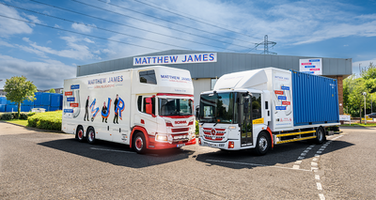
De-clutter
Planning ahead and taking a few necessary steps can help reduce the stress of moving home. De-cluttering is a good place to start. It can be surprising how much stuff we accumulate that we will never use. In new homes around the country, many garages and spare rooms are filled with boxes that will likely never be fully unpacked. The owner paid to have those boxes moved and now they just take up space.
There’s no sense in packing and moving items that you don’t want to keep, only to dispose of (or store) them after you’ve moved. Many of the items that you no longer want could be useful to other people, so donate them to charity shops or offer them on social media. Offering items free of charge (if the recipient collects) can save on tipping fees or reduce the number of boxes that you are paying to get moved.
Get a Removal Quote
Once you have decided on what you are moving to your new home, it’s time to get a quote from a reputable mover. It’s wise to get more than one quote, but make sure you are comparing like for like. Removals companies vary in the resources they have available and the quality of their service.
Packing and Preparing
Unless you have opted for a full packing service, the next step is to start packing. Remember that you will get better insurance cover if your boxes were packed by the removals company.
Not all cardboard boxes are suitable to protect your goods in transit. Flimsy, single wall boxes offer very little protection and collapse under the weight of anything stacked on top. So be sure to get high quality boxes. Removals companies can sell you boxes and other materials at good rates because they buy in bulk. Some may even offer used boxes, free of charge, as part of their quote.
As you are packing, label each box with the destination room so when offloaded into your new property the removal crew knows where to put it.
You will not usually need to pack all the hanging items from your wardrobes. Most movers provide hanging garment carriers (wardrobe boxes) on the day of the move. Your hanging items will be transferred to the garment carriers for the journey.
A few days before moving day, start preparing your kitchen appliances. Reduce the food in your fridge and freezer so they can be defrosted and ready for transport on the day. All appliances (including washing machine, dishwasher, etc) will need to be disconnected and drained of water before moving. Cookers must be disconnected by qualified persons. The average remover does not have insurance to disconnect cookers.
Moving Day
On the morning of moving day, prepare a small box for essential items. This should include any medication you may need for the day, (such as an inhaler or prescription pills) phone charger, any documents related to your move and anything you will need throughout the day.
The very last box to be packed and loaded will be the first one to get unloaded at the other end. This should contain the kettle, some cups and everything you need to make a nice relaxing cup of tea in your new home.




